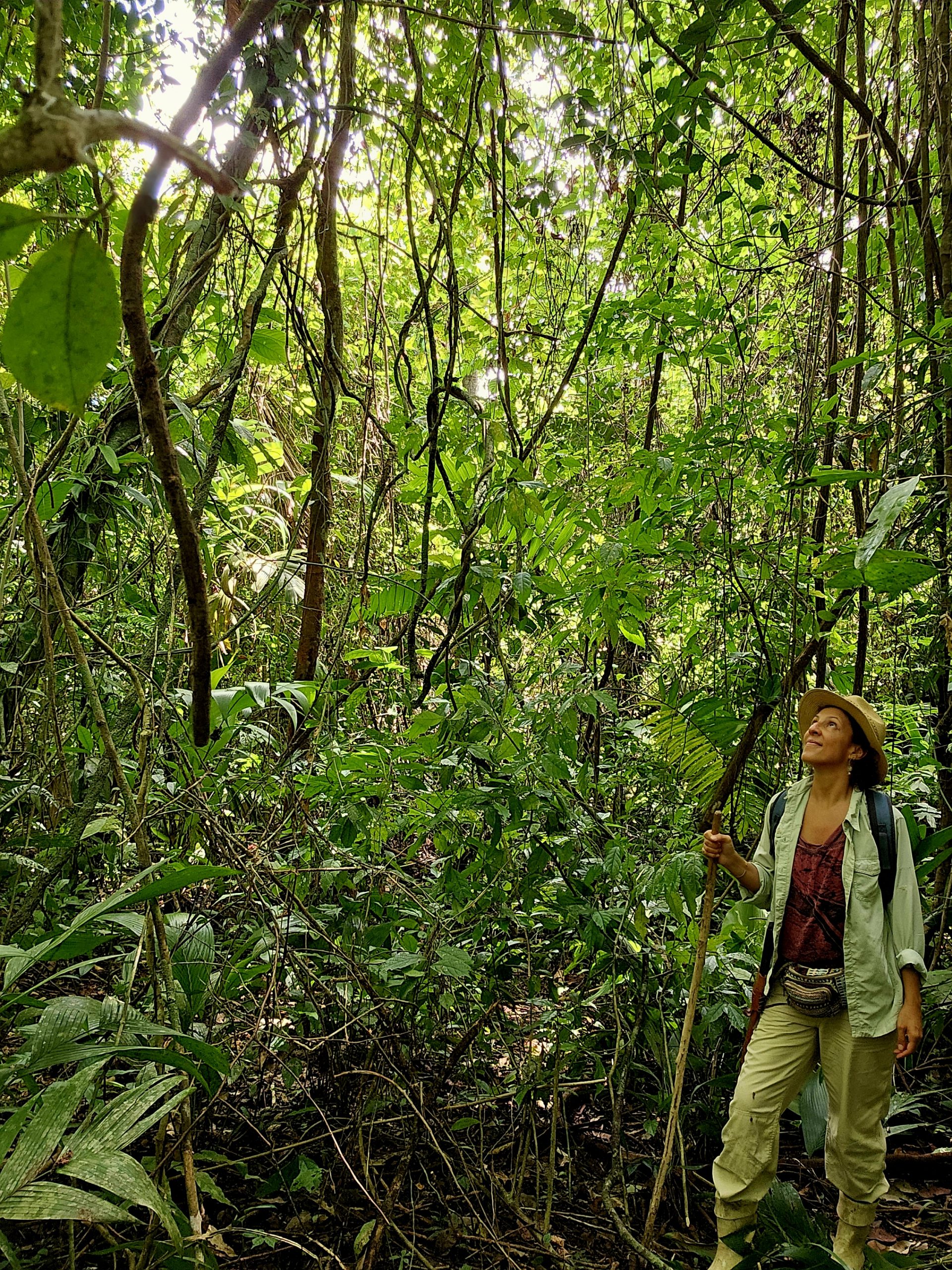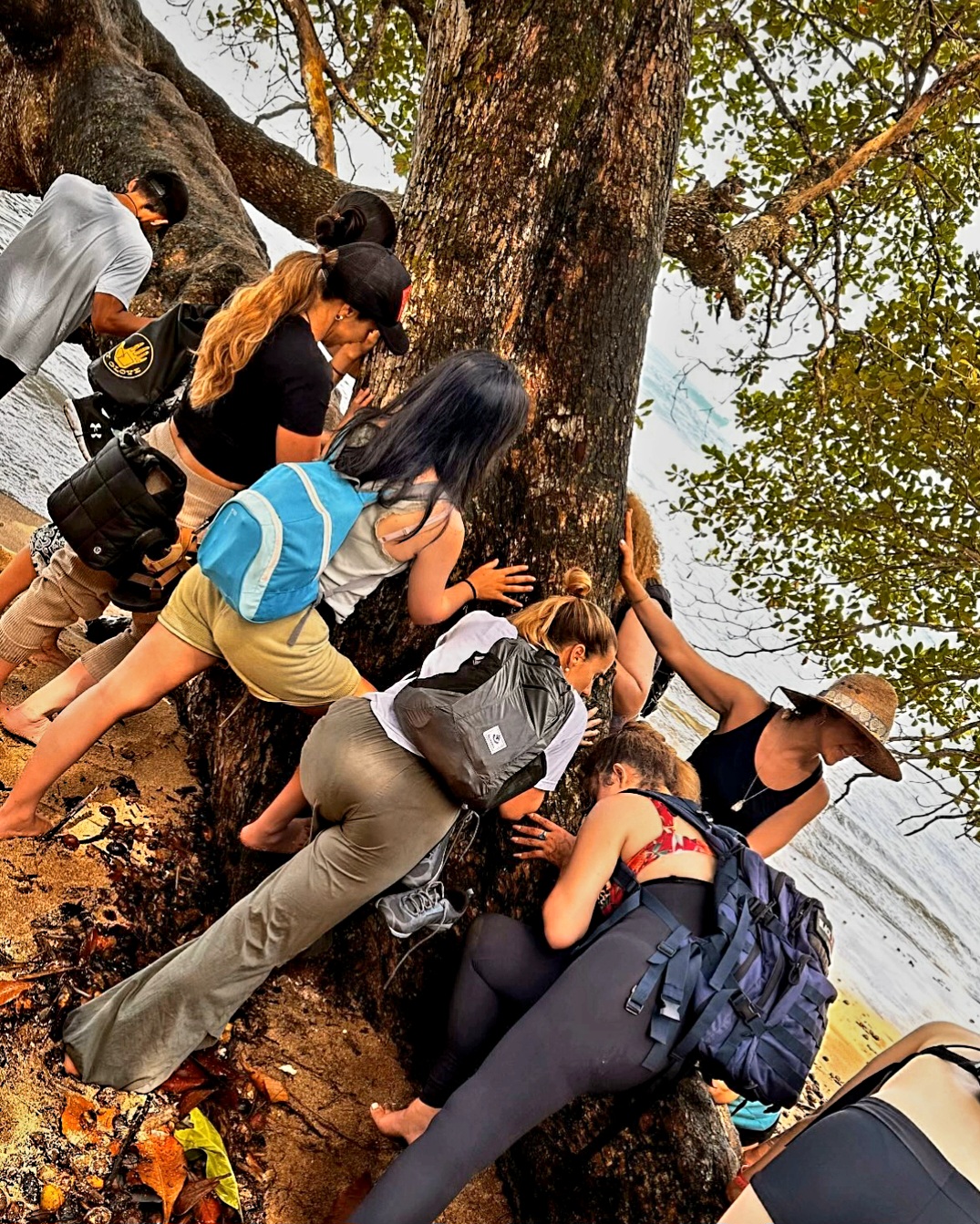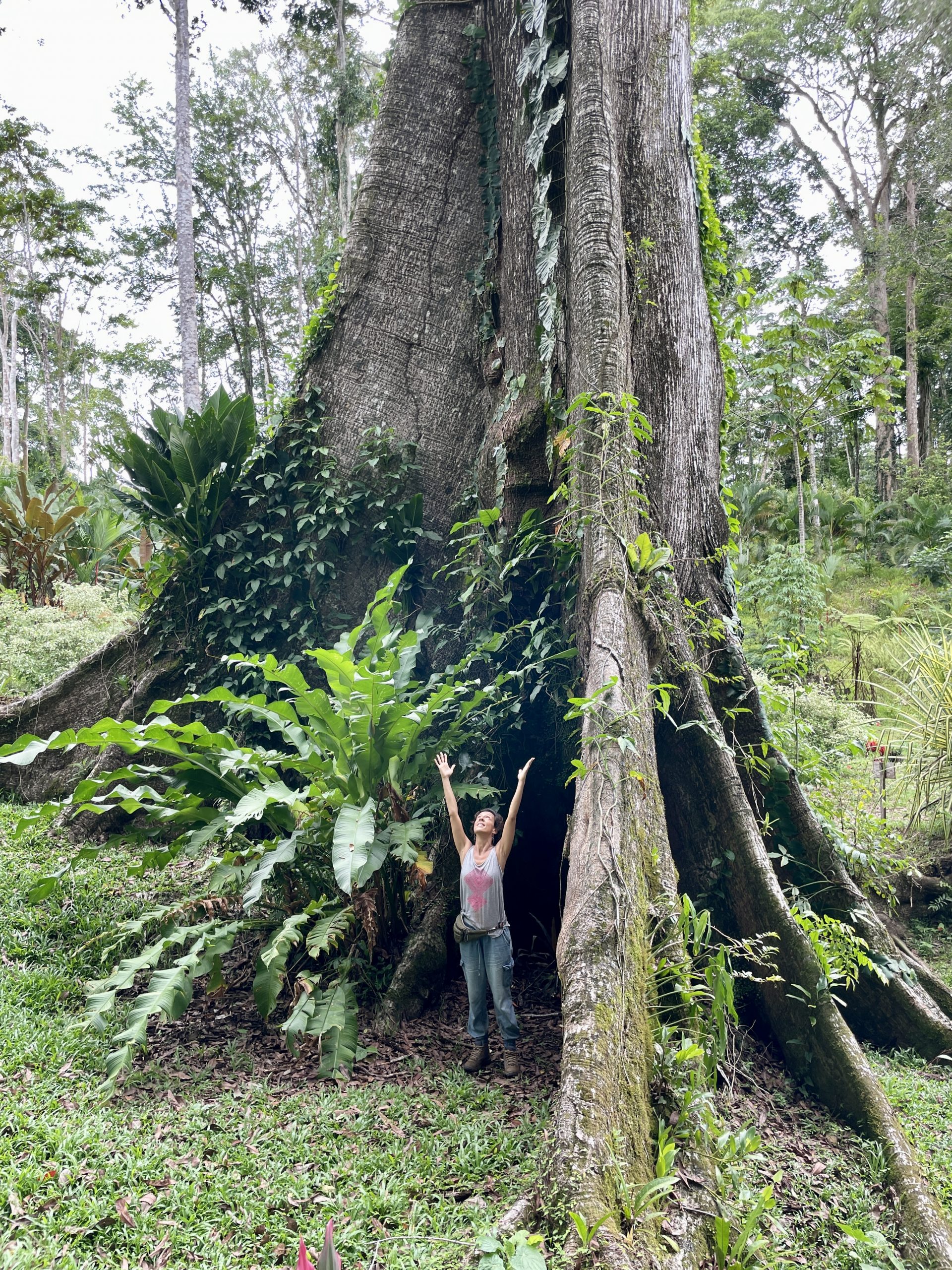New network for environmental education
To link the Costa Rica-wide environmental education activities of our local partner organizations, Tropica Verde is launching a cross-project environmental education network.
Get to know the coordinator Mónica Chinchilla Vargas in an interview!

Interview with the coordinator of the Tropica Verde environmental education network in Costa Rica
Hola Mónica, can you tell us something about yourself?
My name is Mónica Chinchilla Vargas, the new coordinator of Tropica Verde’s environmental education network. As a Costa Rican, I have a deep connection to nature, which I have been cultivating for over 20 years and which is an important teacher and guide for me. My educational background includes studies in sociology, metaphysics and I also have a certification as a forest and nature therapy facilitator and much more.
I value the exchange with other people, cultures and philosophies of life, as each of them broadens my horizons and enables me to look at life from different perspectives. I often find my inspiration in the sea and in the tropical forests, where I find a spiritual connection and inner peace through contemplation. Part of my mission is to show other people different ways to connect with nature, reminding them that we are a part of nature and how we can deepen that connection by allowing it to be us and be with it.
What motivated you to apply for this position?
My motivation to apply for this position lies in Tropica Verde’s overall mission to promote environmental protection through environmental education in Costa Rica. The opportunity to work in an organization that focuses on collaborative projects involving different stakeholders, from local communities to the government and private sector, creates a significant and transformative knowledge exchange space that is of great benefit today by creating spaces for reflection and action in favor of environmental conservation.
In your opinion, what are the most important environmental problems currently facing Costa Rica and how do you plan to tackle them as Environmental Education Coordinator?
The lack of government budget and interest in integrating environmental education into the school curriculum and the lack of commitment and leadership from the government in implementing a national climate strategy are important environmental issues for me in Costa Rica.
Every day I observe a constant transformation of territories and ecosystems with increasingly obvious impacts such as deforestation, loss of biodiversity, inadequate waste management and pollution of water resources. As coordinator, I aim to address these challenges through education and awareness-raising projects that promote the conservation of natural resources and support sustainable practices in local communities. These projects aim to tackle environmental problems holistically by using participatory and pedagogical approaches such as active learning, playful education and reflection as a driver for action.

How do you envision the development and implementation of environmental protection projects in collaboration with local communities in Costa Rica?
My vision for the development and implementation of conservation projects in collaboration with local communities in Costa Rica is to create participatory initiatives that empower communities to be active stewards of their natural environment. This includes the development of educational programs, training in conservation practices and the promotion of community participation in decisions related to the environment and territory.
How do you plan to work with various stakeholders, including government organizations, NGOs, local communities and the private sector, to promote environmental protection in the region?
My approach will be to build collaborative relationships and dialog with all relevant stakeholders to promote environmental protection in the region. This includes the organization of consultation meetings, the provision of cooperation spaces and the identification of opportunities for mutual cooperation. In addition, I will seek to utilize the resources and knowledge of each group to develop comprehensive strategies that address environmental issues effectively and equitably.
How do you ensure that environmental projects are culturally sensitive and respectful of local communities in Costa Rica?
I would like to base my work on the principle of inclusion and mutual respect. This includes incorporating participatory approaches that involve communities from the outset, recognizing and valuing traditional and local knowledge, and adapting strategies to the specific needs and priorities of each community. In addition, I will work closely with community leaders and local organizations to ensure open and transparent communication at all stages of the project.
Thank you Mónica for conducting the interview with us. We are very happy about our cooperation and are sure that we will achieve a lot together!
